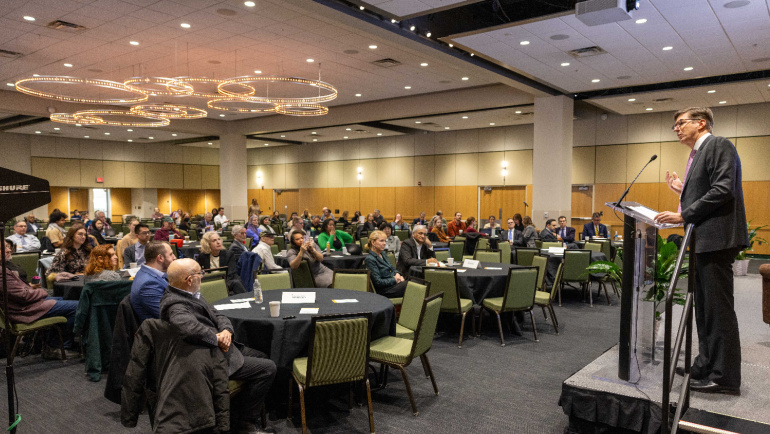
As higher education has come under scrutiny in our divisive political climate, universities are now often a hotbed for debate among critics who claim free speech is under attack on campuses. Universities must balance fostering an inclusive environment that enables learning for students who are diverse in their backgrounds and respected and encouraging free speech and robust debate. Although emotionally charged issues and complex pressures mean that finding balance is often easier said than done, universities have a critical responsibility to further civil discourse. Wayne State University embraces that responsibility, and on Feb. 29 hosted a daylong symposium, Speech on Campus: Perspectives, Implications and Ethics, to engage students, faculty, staff and administrators in robust discussion and critical thought.
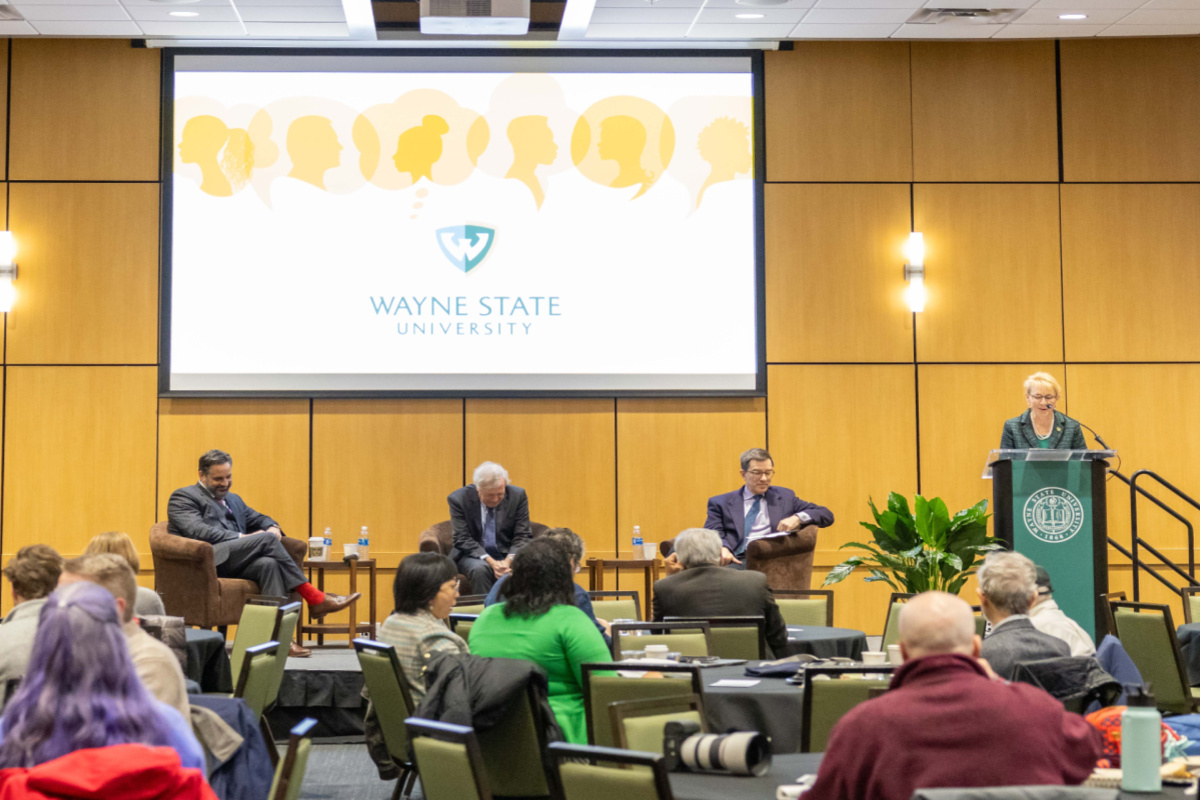
“We aim to foster an inclusive learning environment where open dialogue and free speech are both protected and celebrated, which is fundamental to Wayne State’s role as a top tier urban research university that serves our community,” said President Kimberly Andrews Espy, Ph.D. “This faculty-led symposium represents an important step toward understanding and collaboration within our university community, because it is through rigorous debate and the respectful, free exchange of ideas that we can truly understand one another and work together toward solutions that provide broad benefit.”
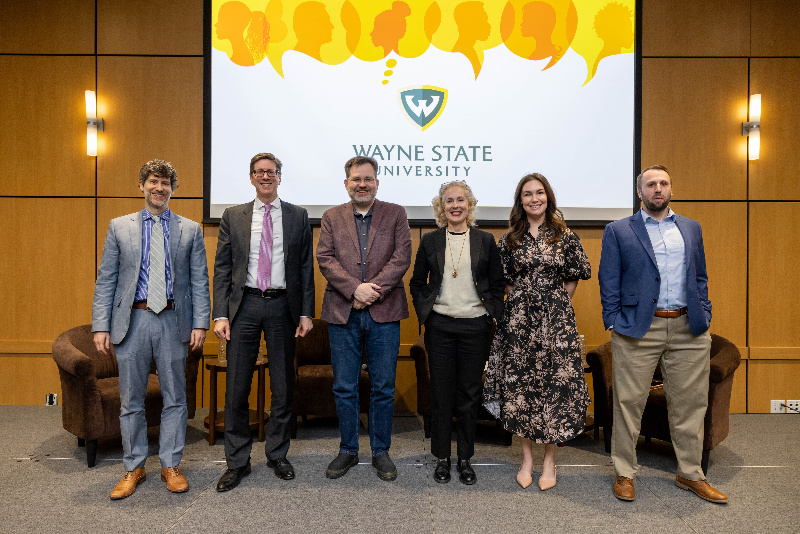
The interdisciplinary symposium, organized by the Law School and hosted in partnership between the president and provost, fostered renewed discussion around free speech issues on campus and beyond. The symposium included two panel discussions — focused on nuanced issues of speech and academic freedom and on strategies to move beyond ideological differences — and a keynote lunch featuring University of California, Berkeley School of Law Dean Erwin Chemerinsky and Seattle University President Eduardo M. Peñalver, renowned legal scholars and national leaders on issues of campus speech.
The symposium is the first in a set of forthcoming academic discussions led by the Office of the Provost and the Division of Academic Affairs and is intended to spark meaningful conversations on campus, while remaining true to the principles of intellectual curiosity, diversity of thought and the free exchange of ideas, which are highlighted in President Espy’s philosophy on communications and university-wide statements.
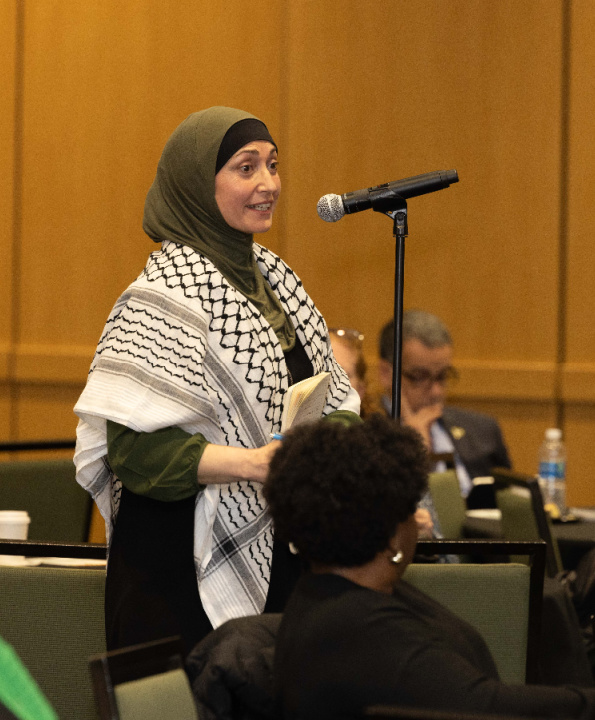
“Universities are unique settings in that we routinely engage with and encourage different perspectives and seek out new ideas. In our universities, people come together to discuss complex issues and to address real world problems - it’s embedded into our academic mission and our values. I’m proud that our community participated so fully in these discussions,” said Provost and Senior Vice President for Academic Affairs Laurie Lauzon Clabo. “Faculty and students alike are uniquely positioned to serve as leaders in promoting discourse in a complex world by demonstrating intellectual curiosity while listening to and learning from others, even when we may fundamentally disagree.”
The symposium included thoughtful conversation and audience engagement around balancing academic freedom and free speech, communicating across differences with empathy, the importance of context and setting to speech, hateful speech, unpacking the meaning of “safety,” student activism, university responses to speech issues, the heightened visibility and impacts of controversial issues and increasingly divisive rhetoric, internal and external pressures faced by leadership, and more.
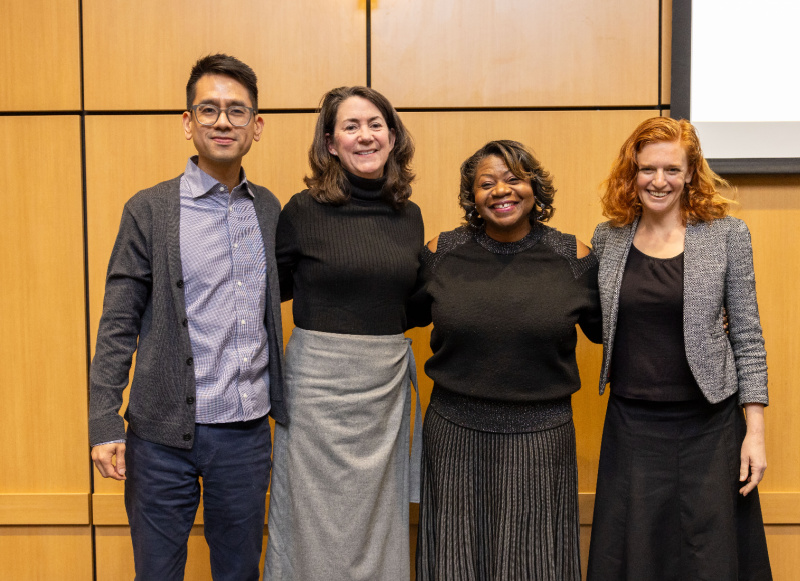
Wayne Law played a pivotal role in organizing the event and leading the discussion. Wayne Law Dean Richard Bierschbach noted that while the law doesn’t provide answers to all of the complex questions related to speech on campus, it can serve as a baseline and starting point.
“The legal perspective is key in any free speech discussion. But the matter is bigger than any one discipline, prudential considerations matter enormously, and civil discourse is a shared responsibility,” said Bierschbach. “I’m grateful to the Wayne Law faculty, especially Michael Oswalt, Jonathan Weinberg, and Mark Satta, who put a great deal of time and effort into bringing us together for this thought-provoking event.”
